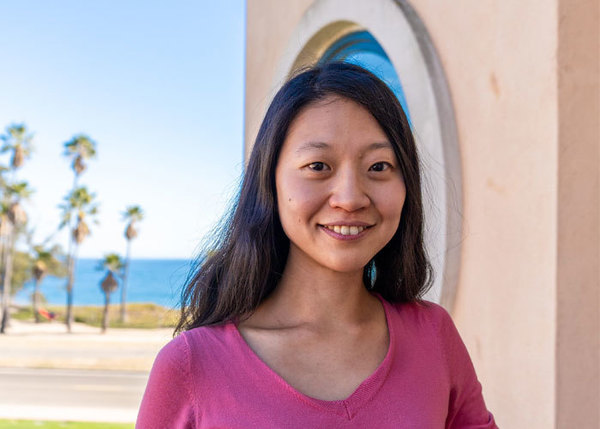Condensed matter physicist Yi-Ting Hsu is a theorist who enjoys discovering the microscopic reasons why different materials behave the way they do.
Hsu, who joined the Notre Dame faculty in the Department of Physics last month, enjoys working with experimental physicists to dig beneath their applications and discoveries, unearthing the science behind how to improve them.

“A few decades ago, people in my area of work were developing silicons, which are now part of your cell phone,” Hsu said. “That’s a successful example of what we do in our field.”
Hsu initially pursued materials science and engineering during her undergraduate years at National Tsing-Hua University in Taiwan. That field, which focuses on applying different scientific principles to design new materials for application purposes, held her interest initially. But she soon realized she wanted to understand the underlying principles for why the materials behaved like they did.
So she began to take more physics classes during her second year, and eventually switched her major to physics.
The development of silicons was an important discovery decades ago. But one of the new “holy grails” in the field, according to Hsu, is the discovery of a superconductor that can operate at room temperature. Superconductors conduct electricity, or transport electrons, between atoms with no resistance. This means they waste no energy, do all their work without “noise,” and can be useful in quantum computers that can solve certain problems many times faster than today’s digital devices. Unfortunately, superconductors can only operate at very low temperatures.
One of Hsu’s interests is in topological superconductors and a type of subatomic particle in the topological superconductors called Marjorna zero modes. Marjorna modes are theorized to be their own antiparticle and could be used in in quantum computing.
Hsu said she’s excited to join the faculty in the Department of Physics to work with the condensed matter group, which is growing and vibrant. In addition to her research, Hsu is teaching an advanced graduate level class in solid-state physics.
After receiving her undergraduate at National Tsing-Hua University, Hsu earned her doctoral degree in physics from Cornell University. Before coming to Notre Dame, she was a postdoctoral researcher at the University of Maryland.